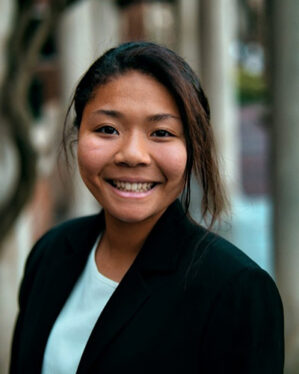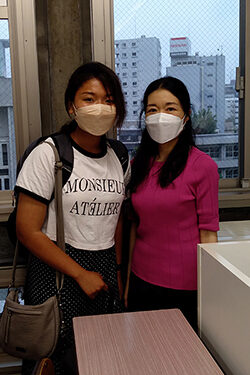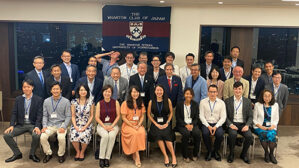 This summer, I was a part of Wharton’s World Research Assistantship Program, where I traveled to Tokyo, Japan, to study Japanese labor markets, under the guidance of my faculty advisor, Professor Olivia S. Mitchell in the Business Economics and Public Policy Department and Professor Sachiko Kazekami at Keio University.
This summer, I was a part of Wharton’s World Research Assistantship Program, where I traveled to Tokyo, Japan, to study Japanese labor markets, under the guidance of my faculty advisor, Professor Olivia S. Mitchell in the Business Economics and Public Policy Department and Professor Sachiko Kazekami at Keio University.
One of my goals coming to Penn was to gain exposure to Japanese business and learn more about it. Growing up in the U.S. suburbs, I hadn’t had the chance to learn about the business environment in Asia hands-on, so receiving a stipend through WRAP to pursue my interests was an incredible opportunity.

Throughout the research period, I assisted with Professor Kazekami’s primary research subject on labor markets in Japan. Because she was working on several projects simultaneously, I gained insight into many of the issues that the labor force of Japan had been facing, a topic of which I had little to no knowledge before. I began by translating one of her research papers for publication, which gave me insight into 1) the general gist of how labor markets work in Japan, and 2) the style of how Professor Kazekami operated her research endeavors. The task also allowed me to gain exposure to the Japanese language in a formal setting.
I then began to work on a project regarding the effects of teleworking in Japan. My role was to research the efficiency of teleworking in the U.S. government’s personnel to understand the precedence and to learn about its applicability in Japan. The Japanese work culture is behind other developed countries, with excess reliance on paper documents and in-person tasks; however, work methodologies have begun to change, especially in the face of the COVID-19 pandemic. I found that teleworking leads to saved costs and more overall happiness; however, due to the lack of consistency in data collection, the direct effects are difficult to pin down. Another project I worked on was gathering and comparing data on the senior labor force participation rates worldwide. I noticed that Japan has a higher rate than average and is higher for men than women, as opposed to the opposite being true for other developed countries.

Although the learning experience from the research was rewarding in itself, exploring Tokyo was just as enriching. My meals consisted of the delicious food options in Japan that I otherwise would not have been able to eat, such as fresh sushi, eel, and yakitori. In my free time, I participated in activities, such as going to hot springs, solo karaoke, and visiting temples. I was also fortunate enough to be able to meet and speak to Wharton alumni that work in Japan to learn more about the professional opportunities in the country.
I cannot emphasize how life-changing WRAP was for me this summer, for my academic and personal growth. I recommend anyone with a passion or interest in a research subject or country to apply.


